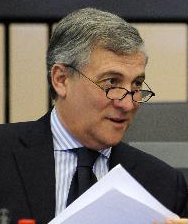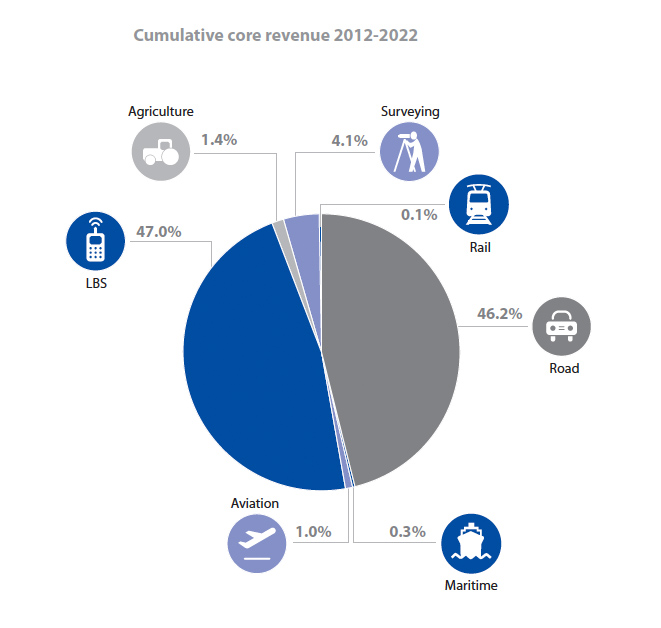 Antonio Tajani, EC Vice-President. EC photo
Antonio Tajani, EC Vice-President. EC photoA European Commission (EC) communication sent to the European Parliament and European Council today (January 18, 2011) estimates that completing a fully operational capability (FOC), 30-satellite Galileo system and the European Geostationary Navigation Overlay Service (EGNOS) will cost an additional €1.9 billion above the €3.4 billion already allocated.
A European Commission (EC) communication sent to the European Parliament and European Council today (January 18, 2011) estimates that completing a fully operational capability (FOC), 30-satellite Galileo system and the European Geostationary Navigation Overlay Service (EGNOS) will cost an additional €1.9 billion above the €3.4 billion already allocated.
The EC report attributes the cost overruns primarily to the increased cost of the development phase, the increased price of the launchers, and the lack of competition for the award of some contracts in the deployment phase.
The commission says that about €500 million of those costs came as a result of the transition from a public-private partnership (PPP) model to an all-public program, including renegotiating contracts and the need to launch a second experimental satellite (GIOVE-A) in order to retain the use of RF frequencies allocated by the International Telecommunication Union (ITU). Another €500 million stems from the higher cost of launch services compared to the original contract.
Moreover, the EC foresees an average annual expense of €800 million to operate the systems.
Nonetheless, the communication states, “The ultimate objectives are not being called into question, because the budget available already encompasses the building and launch of 18 satellites, with the associated ground infrastructure, and the supply of the first services from 2014–2015.” The €3.4 billion also covers the initial operation of the EGNOS services.
In releasing the communication, European Commission Vice-President Antonio Tajani, Commissioner for Industry and Entrepreneurship said, "Galileo will allow Europe to compete in the global space technology market and to impose itself as one of the leading players in a growing sector characterized by increased internationalization and the entry of emerging economies. We are satisfied with the progress made so far and committed to bringing this project to fruition."
Assuming that the additional money is approved, the commission’s Galileo leaders now expect the FOC system to be completed in the 2019–2020 time frame. The EC is also proposing that EGNOS, essentially the European counterpart to the U.S. Federal Aviation Administration’s Wide Area Augmentation System (WAAS), be adapted so as also to improve the accuracy of the Galileo open service as well as GPS.
Pending reaction from parliament and the European Council, the commission will develop proposals for alternative methods of financing the project.





